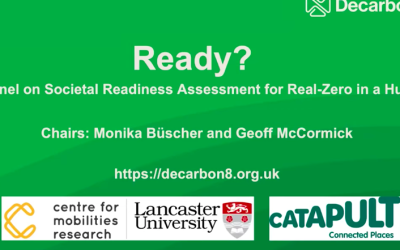What if … Lancaster made big and small data matter …
The rhetoric of big data is often utopian in scope. The collection of vast quantities of data is said to have the potential to ameliorate complex, wicked problems – like Lancaster’s transport troubles. Furthermore, the assumption is that if enough data are gathered, rich seams of information and knowledge can be mined to drive efficiencies and improve services.
In these utopian visions, cities and transportation systems of the future will be driven by data, where complex data ecosystems manage traffic systems, driverless cars and public transportation.
What will happen to people and experiences of movement at a human scale?
Datadrift explores futures of transportation systems and the reliance upon the collection and re-use of big data.
We will ask questions regarding what might ‘datafied’ traffic mean for people navigating and understanding their streets. Data are collected predominantly through technological systems, which often neglect people and place, resulting in reductive views of complex socio-technical systems. Emphasis is placed upon the re-use of the data, without consideration of the usefulness or impact of data collection methods.
This experiment brings together walking, mobile critical cartography and co-design to form a new method, the Datadrift, to explore the future of data and transportation.
Through walking, making maps and employing co-design techniques participants are encouraged to critically engage with the early stages of the data lifecycle in order to foreground the implications of a reliance upon automated data in future transportation systems. This mobile method encourages participants to explore what data means to different people, what data is important to them in considering future transportation systems and how that data might be collected and re-used.




